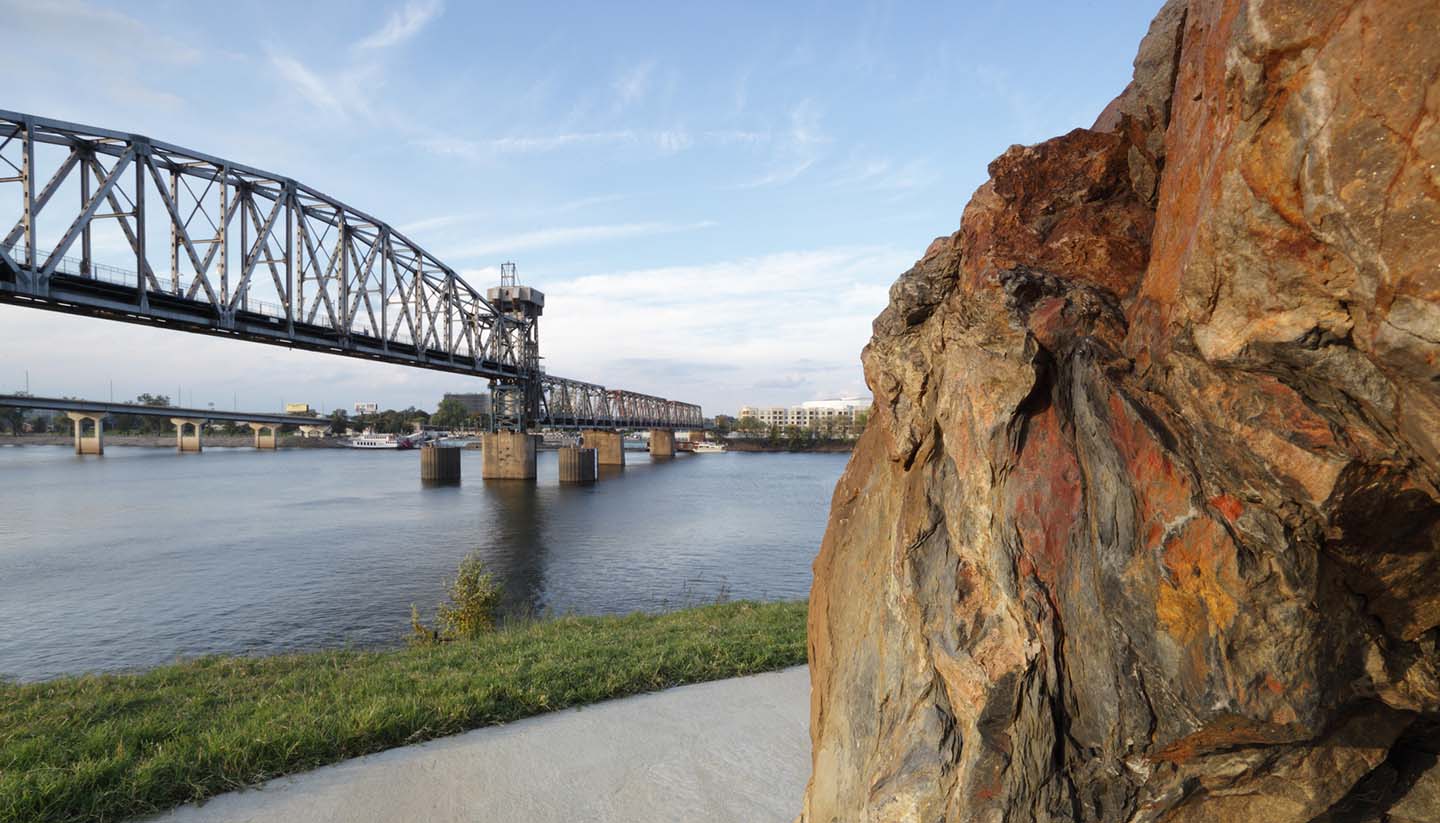Arkansas History, Language and Culture
History of Arkansas
The state of Arkansas gets its name from its first known inhabitants, the Quapaw people, also known as the Akansea people (meaning "land of the downriver people").
The state was free of European influence until Hernando de Soto of Spain arrived in the mid-1500s, followed in the late 17th century by French explorers during their exploration of the Mississippi river. Another Frenchman, Henri de Tonti, founded Arkansas Post as a base camp for expeditions, and created the first European settlement in Arkansas in 1686.
Arkansas remained almost exclusively unsettled throughout the 18th century, although the French handed the Spanish control of Arkansas Post in the Treaty of Fontainebleau; this despite its significant location on the Mississippi River and as a hub for fur trappers and traders.
In 1800, control of the Louisiana Territory (including Arkansas) was handed back to the French after Napoleon’s conquest of Spain and three years later, when England declared war on France, Napoleon sold the land to the United States in the Louisiana Purchase; an act which doubled the size of the US.
The Territory of Arkansaw was granted statehood in 1836, and renamed Arkansas. Despite a highly developed agricultural system of corn, cotton, and grain plantations based on slave labour, the state’s economy was not strong enough to support government functions; the newly created state banks collapse after the nationwide recession, the Panic of 1837.
The economy picked back up before the Civil War and the population of Arkansas was quick to secede and take up the cause of the Confederacy. The Union captured Little Rock, Arkansas, in 1863 and ended the Civil War in the state.
Little Rock came to be the focus for the Civil Rights Movement during the Little Rock Nine event in 1957; Little Rock Central High school was being desegregated in compliance with the law, and residents in favour of remaining segregated crowded the school and blocked the path of nine black students from entering the school. President Dwight Eisenhower was forced to take control and protect the nine students from rioters.
In more recent years, Arkansas has had a booming economy, with agriculture and manufacturing as the main industries, and the mining of natural gas and oil also boosting the economy. Bill Clinton, 42nd President of the United States, was also born in Hope, Arkansas and served as the Governor of Arkansas for nearly 12 years.
Arkansas Culture
Religion in Arkansas
Arkansas is located in America’s Bible Belt. Protestantism is the predominant religion, with other large denominations including Southern Baptist, Methodist, and Catholics.
Social Conventions in Arkansas
Because Arkansas is in the heart of the southern US, polite manners and generous hospitality are plentiful, but things tend to move a bit slower than in the north or the west coast. Try to adopt the local mindset and not hurry.
Like many other states in the south, country and bluegrass music are popular in Arkansas. In the Ozark Mountains, the small town of Mountain View considers itself “The Folk Music Capital of the World.” Famed country star Johnny Cash was also born in Kingsland, Arkansas.
Language in Arkansas
English is the official state language of Arkansas and spoken by the majority of the population. Some place-names in the state, like Choctaw and Ouachita, remain as a reminder of Native American influence in the region.

